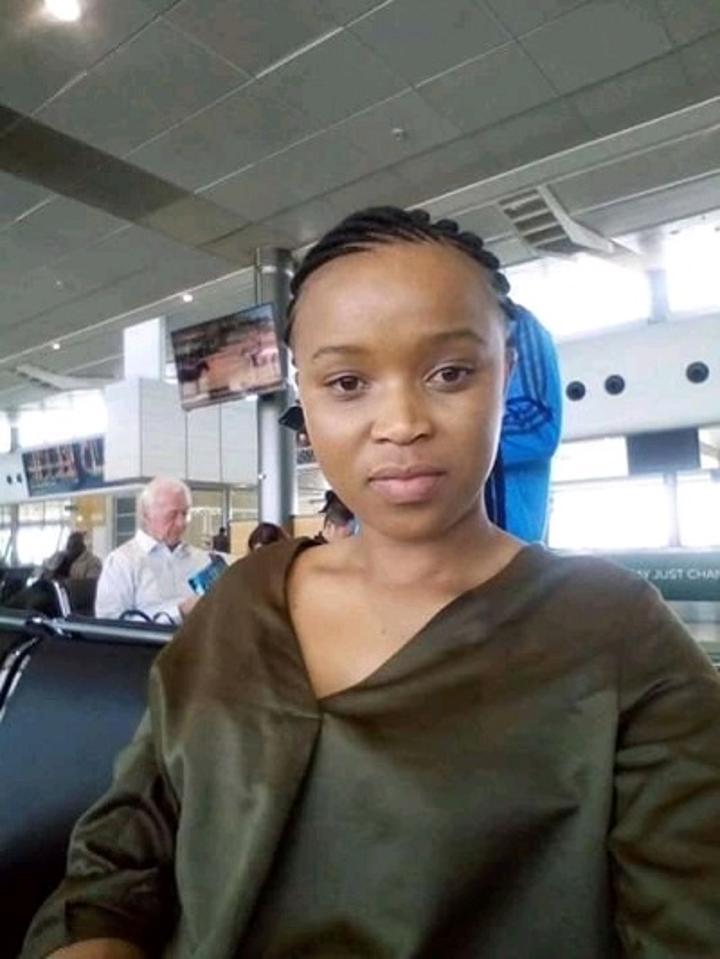Africa-Press – Lesotho. The world is fast moving into digitization and everyday new technologies are developed. As the world embraces Artificial Intelligence (AI), the Internet of Things (IoT), as well as
other new technologies generally have disrupted the way economies, governments and industries do things. Our reporter, Thoboloko Ntšonyane talks to the
technopreneur powerhouse, ‘Maneo Mapharisa. With many caps under her belt, she has recently been selected as one of Africa’s 50 Digital Champions. She was invited by the United Nations (UN) women in
Rwanda at Youth connekt Africa to advise international youth on technology, having a startup as a student at National University of Lesotho (NUL) and how
to solve problems she encountered in all those processes. Also this whizz kid had mentored her students who participated in the PAN African Robotics competition and they won an award for good robot design amongst other accolades. Below is the interview.
Who is ‘Maneo
Mapharisa? She was born and raised in Lesotho, inspired to teach girls how to code and assemble robots. “There is a big shortage of women in Science, Technology, Engineering and Mathematics (STEM) fields and it is best
to start grooming them at a tender age. Additionally, providing girls with coding skills will help build foundations for life long skills they can apply
in any field of study. I love reading and playing tennis as a hobby,” she said. What did you study and what did you want to be when growing up? I have studied Computer Science at the National University of Lesotho.
I wanted to study nursing but computer science was my first love. Tell us about your passion for Digital and Communication Technology, when and how did it begin?
When I was in high school I loved communicating with my friends and family, and that passion grew into emails, social media and even doing my research at
university level. Now in 2020 I train my clients using platforms that support video calls and text. I have mentors around the world we communicate through
social media, emails, video calls or text. I learn and participate in international activities through digital communication. I love technology. You are one of the brains behind the
establishment of Girls Coding Academy, take us through the journey leading to the birth of this Academy. Girls Coding Academy (GCA) is founded by two women in Computer Science fields,
myself and Ms Nkentso Ledimo. The entity essentially seeks to equip 80% girls and 20% boys with robotics, AI, basic computer skills as well as programming or
coding (the process of developing and implementing various sets of instructions to enable a computer to do a certain task. These instructions are considered
computer programs and help computers to operate smoothly) skills as a way of reducing the gender gap in STEM fields. We observed the low statistics of women
in STEM fields in Lesotho and also observed that if we train women only, at their jobs they will have a male employee and will need to know how to work
smoothly with them. And that is why we opt to have 20% of boys by encouraging women and girls to participate in STEM related activities. 20% of boys have great opportunities as well because they are few and they get
attention every time when needed and they become more innovative. GCA seeks to organize weekend coding sessions, after school coding clubs, winter and summer coding camps, Hackbots inside the
country and on the international level, hackathons and mentorship to the girls. We also provide one on one sessions on a weekly basis. We have no business
competition so far on robotics. When we started, people could not understand the need of programming or coding since it is not part of the curriculum in
most schools in Lesotho and even now people do not really get the need for a child to know robotics, coding and AI. We take this as a crisis because now we
live in the fourth industrial revolution where machines are taking over and people are losing jobs. We need to train the generation that will compete on
international markets (STEM fields markets) with innovations that are produced in our own country. We are ready for Lesotho to introduce robotics in addition
to coding in every school or community by holding coding camps and robotics camps. Our target group is 6 to 23 years of age (preschool, primary, high school and Tertiary students).
GCA will operate from Maseru, the capital city of Lesotho as a pilot project before expanding to the rural areas of Lesotho As the name denotes, is it exclusively
for girls? No, we admit 80% girls and 20% boys. It has been argued elsewhere that digital connectivity is like the latter days “oxygen,” what is your take, could you expand on that?
Even though researchers say 53% of the population is connected to the internet, I second that digital connectivity is like the latter days “oxygen”. For example, COVID-19 has dealt a shock to our
world. Large numbers of the global population are living under some restrictions and enforced distancing. We are learning to live differently, to learn, socialize, shop, worship and collaborate differently.
And we are doing all this online. Do you think Lesotho is catching up with the pace at which other African countries are moving towards embracing and exploiting Artificial Intelligence (AI)?
Lesotho is catching a pace at which other African countries are moving towards embracing and exploiting Artificial Intelligence. Most Basotho know how to advertise, buy and sell online
especially on social media. There are other startup organizations like Girls Coding Academy tapping in AI and other big organizations. Even though we are
not fully there like other African countries, we surpass other African countries. Which areas or sectors in the country can you say are lagging behind?
On social media I saw a video of a thief stealing money from a local shop in Maseru. He used his bare hands to touch the counter, cashier machine and equipment in that shop.
The finger prints could be used by our security officials to trace such suspects or even know full details about such a person. I was told that there is no such technology used by our security
officials. What is your advice to upcoming technopreneurs and those aspiring to be in this field? We need more technopreneurs in order to help all Basotho especially in rural
areas to understand the tech space and benefit from that space. I love technology because it is evolving every day and that means new clients and new technopreneurs can tap in that space at any given time and still make good
profits. What challenges are there in the field of Information and Communication Technology (ICT)? I would advise girls to partake in short courses or full time courses to learn
about tech space since the world economy is shifting towards that direction. People are being replaced by machines and also there are few people building
and maintaining such machines. We need more innovators and problem solvers. Your words to girls who want to pursue STEM (Science, Technology, Engineering
and Mathematics ) subjects? The world now is empowering women in STEM and it’s a sure case that girls will find full support from Girls Coding Academy, UN Women
and other organizations in support of women empowerment in the space. The sky is the limit for girls in STEM or tech space. Access to data and gadgets remains a
challenge to some students, more so, that have been under strain owing to the COVID-19 pandemic that had the schools closed and e-learning becoming an
alternative to counter the physical contact learning. How do you think the government can join hands with the business community to bridge that learning
digital divide? The government can collaborate with the private sector to buy equipment and gain advice on e-learning. Bad as COVID 19 is, it was or is a wakeup call to
me, Basotho and the government that e-learning has to be part of the curriculum in Lesotho. Students have to know how to make video calls, send and receive
text or email, research online and have equipment to make that easy. You are an Ambassador of Africa Code Week, what does that entail? I am an ambassador of Africa Code Week Lesotho.
I anchor locally for Africa Code Week event orchestration, questions and support. Basotho are free to reach out to me to get introduced to get started hosting their own coding workshops
or simply get introduced to other interested schools or organizations. I avail myself to help Basotho to engage as many children and youth as possible in all
communities, villages or districts in Lesotho. You were recently selected as one of the 50 Digital Champions, what does this feat mean for you and for your work or career?
I am named as a Digital Champion representing my country. This is to recognize and honor the great work I am doing towards Digital Africa. From impact to
profitability, they appreciate me. The Selection Board for Africa’s 50 Digital Champions writes to formally inform you on your selection as the National
Digital Champion of Lesotho. I was selected based on the wonderful and impactful work that I and the organization “Girls Coding Africa” is administering to the
citizens of Lesotho and contributions towards Lesotho’s Digital Ecosystem. Africa’s 50 Digital Champions is part of the Africa Digital Festival in defining the continent’s digital space while unlocking, showcasing and recognizing digital innovations built for Africa by Africa to the World.
For More News And Analysis About Lesotho Follow Africa-Press






